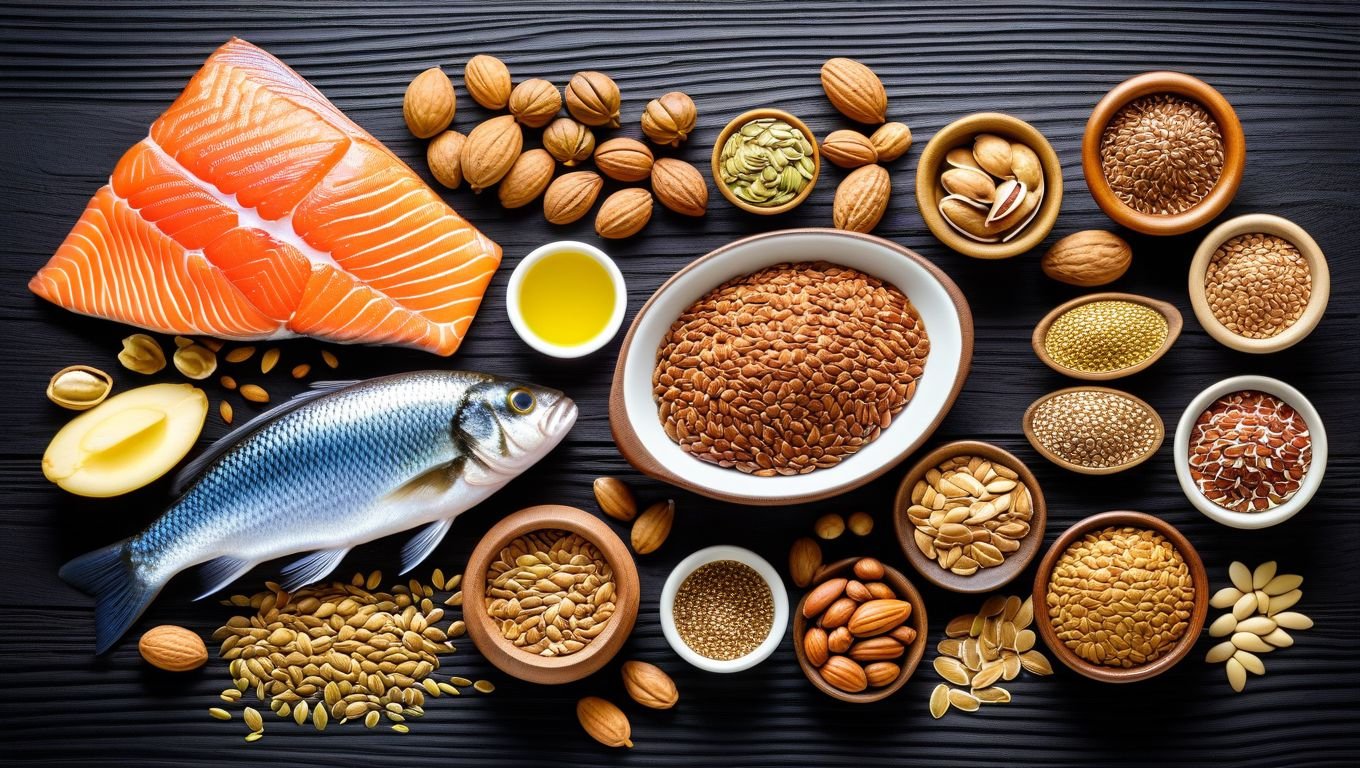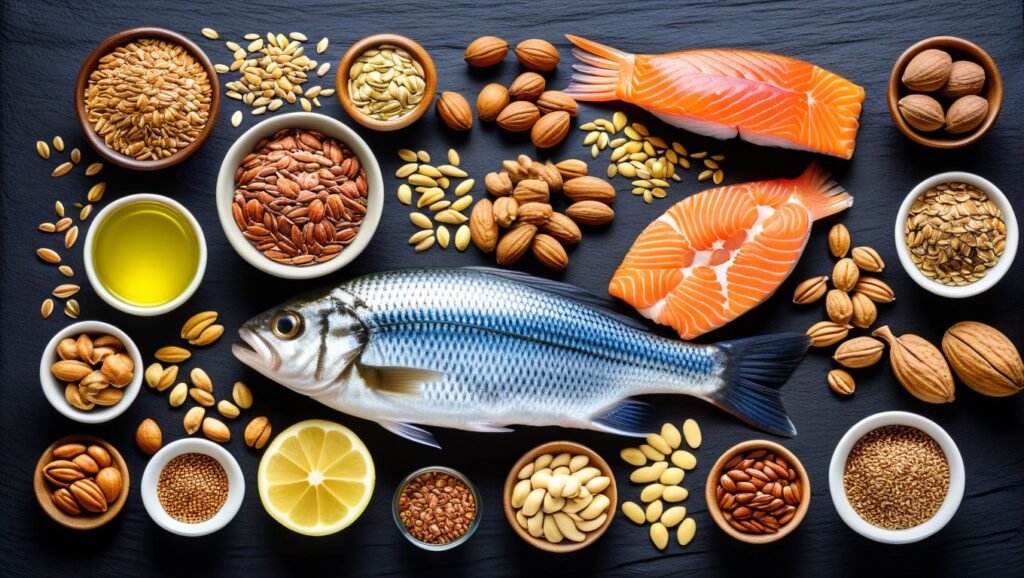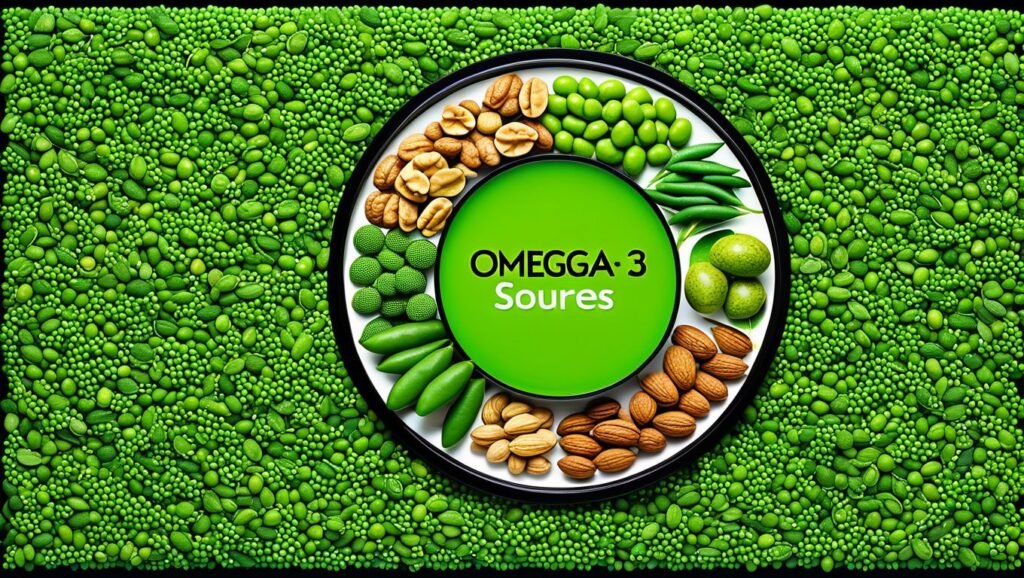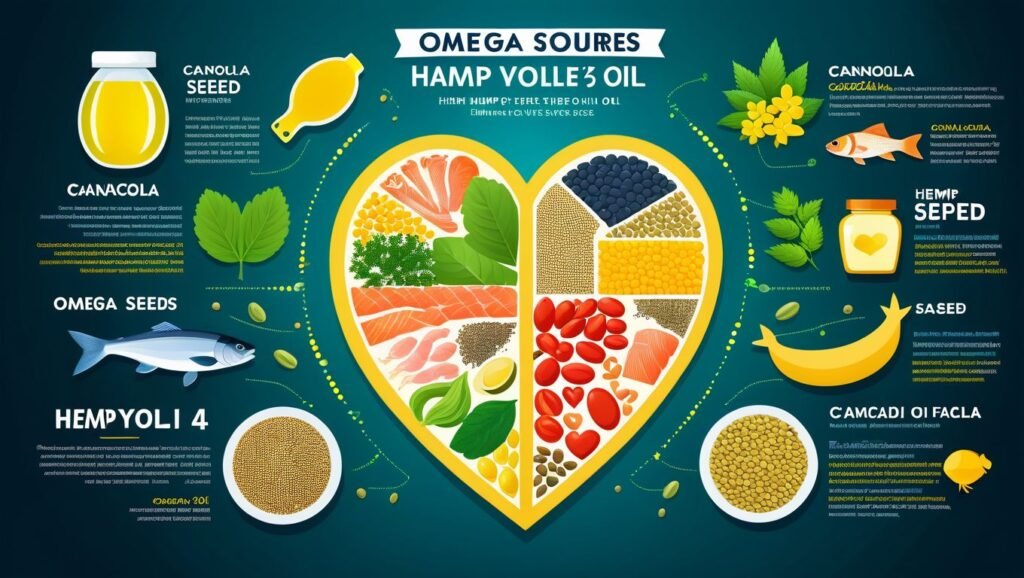
“8 Incredible Omega-3 Sources You Need to Know”
8 Incredible Omega-3 Sources You Must Know About
Discover incredible omega-3 sources to enhance your diet and health. Learn about their benefits and how to incorporate them easily.


Introduction
Overview of Omega-3 Fatty Acids and Their Importance for Health
Omega-3 fatty acids are essential polyunsaturated fats that play a crucial role in maintaining overall health. They are vital for various bodily functions, including brain health, heart health, and reducing inflammation. Since the body cannot produce Omega-3 fatty acids on its own, it is essential to obtain them through diet or supplements.
read also ” 10 Essential Health Benefits of Vitamin A”
Brief Explanation of the Benefits of Omega-3
Omega-3 fatty acids offer numerous health benefits, including:
- Heart Health: Omega-3s help reduce the risk of heart disease by lowering blood pressure, reducing triglycerides, and preventing the formation of blood clots.
- Brain Health: They support cognitive function and may reduce the risk of neurodegenerative diseases such as Alzheimer’s.
- Anti-Inflammatory: Omega-3s have anti-inflammatory properties that can help manage conditions like arthritis and other inflammatory diseases.
- Eye Health: They contribute to maintaining healthy vision and may reduce the risk of age-related macular degeneration.
- Mental Health: Omega-3s are linked to improved mood and may help alleviate symptoms of depression and anxiety.

Source 1: Fatty Fish
Explanation of Why Fatty Fish Like Salmon, Mackerel, and Sardines Are Rich in Omega-3
Fatty fish are among the best sources of Omega-3 fatty acids, particularly eicosapentaenoic acid (EPA) and docosahexaenoic acid (DHA). These types of fish accumulate Omega-3s in their tissues by consuming algae and smaller fish that are rich in these essential fats. Salmon, mackerel, sardines, herring, and trout are some of the most Omega-3-rich fish.
Health Benefits of Consuming Fatty Fish
- Cardiovascular Health: Regular consumption of fatty fish can help lower the risk of heart disease by reducing inflammation, lowering blood pressure, and improving cholesterol levels.
- Brain Function: The DHA in fatty fish is essential for brain development and function, making it beneficial for cognitive health and reducing the risk of cognitive decline.
- Joint Health: Omega-3s in fatty fish can help reduce symptoms of arthritis and improve joint mobility.
- Eye Health: Consuming fatty fish can support eye health and reduce the risk of age-related macular degeneration.
Source 2: Flaxseeds
Nutritional Profile of Flaxseeds and Their Omega-3 Content
Flaxseeds are an excellent plant-based source of alpha-linolenic acid (ALA), a type of Omega-3 fatty acid. They are also rich in fiber, lignans, and other essential nutrients. One tablespoon of ground flaxseeds contains approximately 1.6 grams of ALA.
Ways to Incorporate Flaxseeds into Your Diet
- Smoothies: Add a tablespoon of ground flaxseeds to your morning smoothie for an Omega-3 boost.
- Baking: Incorporate flaxseeds into baked goods like muffins, bread, and cookies.
- Salads: Sprinkle ground flaxseeds over salads for added texture and nutrition.
- Yogurt: Mix flaxseeds into yogurt or oatmeal for a nutritious breakfast or snack.
Source 3: Chia Seeds
Benefits of Chia Seeds as a Plant-Based Omega-3 Source
Chia seeds are another excellent plant-based source of ALA Omega-3 fatty acids. They are also high in fiber, protein, and various micronutrients. Two tablespoons of chia seeds provide approximately 4 grams of ALA.
Tips for Adding Chia Seeds to Meals and Snacks
- Puddings: Make chia seed pudding by soaking chia seeds in milk or a milk alternative overnight. Add sweeteners and toppings of your choice.
- Smoothies: Blend chia seeds into smoothies for a nutritionally dense addition.
- Baking: Use chia seeds in baking recipes, such as bread, muffins, and energy bars.
- Sprinkling: Sprinkle chia seeds over yogurt, oatmeal, or salads for added crunch and nutrition.
Source 4: Walnuts
Explanation of the Omega-3 Content in Walnuts
Walnuts are a rich source of ALA Omega-3 fatty acids. One ounce (about 14 halves) of walnuts contains approximately 2.5 grams of ALA. They are also packed with antioxidants, vitamins, and minerals.
Health Benefits and Ways to Enjoy Walnuts
- Heart Health: The Omega-3s in walnuts can help reduce the risk of heart disease by improving cholesterol levels and reducing inflammation.
- Brain Health: Walnuts are known to support cognitive function and may help protect against neurodegenerative diseases.
- Antioxidant Properties: Walnuts are high in antioxidants, which can help protect the body from oxidative stress and inflammation.
- Ways to Enjoy:
- Snacking: Enjoy a handful of walnuts as a nutritious snack.
- Salads: Add chopped walnuts to salads for added crunch and flavor.
- Baking: Incorporate walnuts into baked goods like cookies, brownies, and bread.
- Cooking: Use walnuts as a topping for oatmeal, yogurt, or roasted vegetables.
Source 5: Algae Oil
Introduction to Algae Oil as a Vegan Omega-3 Source
Algae oil is a plant-based source of Omega-3 fatty acids, making it an excellent option for vegans and vegetarians. Unlike fish oil, which is derived from fish, algae oil is extracted directly from algae, the primary source of Omega-3s in the marine food chain. Algae oil contains both eicosapentaenoic acid (EPA) and docosahexaenoic acid (DHA), the same beneficial Omega-3s found in fish oil.
Benefits of Algae Oil Supplements
- Vegan-Friendly: Algae oil is a sustainable and ethical alternative to fish oil, suitable for those following a plant-based diet.
- High Omega-3 Content: Algae oil supplements provide a concentrated source of EPA and DHA, essential for heart, brain, and eye health.
- Purity and Sustainability: Algae oil is free from contaminants such as mercury and heavy metals, often found in fish oil. It is also produced sustainably, reducing the environmental impact.
- Anti-Inflammatory Properties: The Omega-3s in algae oil have anti-inflammatory effects, which can help manage conditions like arthritis and other inflammatory diseases.
Source 6: Hemp Seeds
Nutritional Benefits of Hemp Seeds and Their Omega-3 Content
Hemp seeds are a nutritious plant-based source of Omega-3 fatty acids, specifically alpha-linolenic acid (ALA). They are also rich in protein, fiber, vitamins, and minerals, making them a valuable addition to a balanced diet. Three tablespoons of hemp seeds provide approximately 3 grams of ALA.
Ideas for Incorporating Hemp Seeds into Your Diet
- Smoothies: Add a tablespoon of hemp seeds to your morning smoothie for a nutrient boost.
- Salads: Sprinkle hemp seeds over salads for added texture and nutrition.
- Baking: Incorporate hemp seeds into baked goods like muffins, bread, and cookies.
- Yogurt and Oatmeal: Mix hemp seeds into yogurt or oatmeal for a nutritious breakfast or snack.
- Energy Bars: Use hemp seeds in homemade energy bars or protein balls for a healthy snack.
Source 7: Canola Oil
Explanation of the Omega-3 Content in Canola Oil
Canola oil is a versatile cooking oil that contains a moderate amount of Omega-3 fatty acids, specifically alpha-linolenic acid (ALA). One tablespoon of canola oil provides approximately 1.3 grams of ALA. It is also low in saturated fat and high in monounsaturated fats, making it a heart-healthy choice.
Health Benefits and Cooking Tips for Using Canola Oil
- Heart Health: The Omega-3s and monounsaturated fats in canola oil can help reduce the risk of heart disease by improving cholesterol levels and reducing inflammation.
- Versatility: Canola oil has a mild flavor and a high smoke point, making it suitable for various cooking methods, including frying, baking, and sautéing.
- Cooking Tips:
- Salad Dressings: Use canola oil as a base for homemade salad dressings and vinaigrettes.
- Baking: Substitute canola oil for butter or other oils in baking recipes to reduce saturated fat content.
- Stir-Frying: Use canola oil for stir-frying vegetables, meats, and tofu for a healthy and delicious meal.
Source 8: Edamame
Overview of Edamame as a Plant-Based Omega-3 Source
Edamame, or young soybeans, are a nutritious plant-based source of Omega-3 fatty acids, specifically alpha-linolenic acid (ALA). They are also rich in protein, fiber, vitamins, and minerals. One cup of cooked edamame provides approximately 0.28 grams of ALA.
Ways to Include Edamame in Your Meals
- Snacking: Enjoy steamed edamame as a healthy snack seasoned with a pinch of sea salt.
- Salads: Add cooked edamame to salads for a protein and Omega-3 boost.
- Stir-Fries: Incorporate edamame into stir-fries with vegetables, tofu, or lean meats.
- Soups: Add edamame to soups and stews for added nutrition and texture.
- Rice and Grain Bowls: Mix edamame into rice or grain bowls for a balanced and nutritious meal.

Conclusion
Recap of the 8 Incredible Omega-3 Sources
- Fatty Fish: Rich in EPA and DHA, beneficial for heart, brain, and joint health.
- Flaxseeds: High in ALA, fiber, and lignans, supporting heart and digestive health.
- Chia Seeds: Excellent plant-based source of ALA, fiber, and protein.
- Walnuts: packed with ALA, antioxidants, and essential nutrients.
- Algae Oil: Vegan-friendly source of EPA and DHA, sustainable and pure.
- Hemp Seeds: Nutritious source of ALA, protein, and essential minerals.
- Canola Oil: Versatile cooking oil with moderate ALA content and heart-healthy fats.
- Edamame: Nutritious young soybeans rich in ALA, protein, and fiber.
Encouragement to Incorporate These Sources into Your Diet for Optimal Health
Incorporating these Omega-3-rich sources into your diet can provide numerous health benefits, including improved heart health, brain function, and reduced inflammation. By diversifying your sources of Omega-3s, you can ensure you receive a balanced intake of these essential fatty acids.
Final Thoughts on the Importance of Omega-3 for Overall Well-Being
Omega-3 fatty acids are vital for maintaining overall health and well-being. Whether you choose animal-based or plant-based sources, ensuring an adequate intake of Omega-3s can support various bodily functions and contribute to a healthier, more vibrant life. Prioritize these incredible sources in your diet to reap the full benefits of Omega-3s.





2 Comments
Pingback:
Pingback: